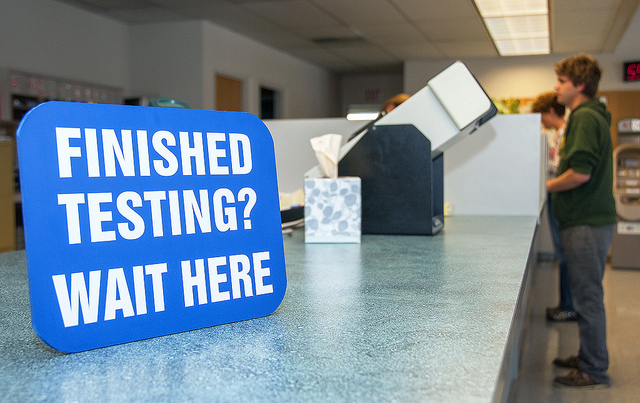Chip in to keep stories like these coming.
So, let me see if I understand this correctly.
Nova Scotia’s Department of Motor Vehicles takes in $120 million a year to register vehicles, peddle license plates, test drivers, etc. The DMV costs $30-35 million a year to operate, meaning it nets the provincial treasury $85-90 million a year.
But the DMV’s technology needs upgrading — to the tune of $30 million.
So, instead of borrowing to do that and amortizing the costs over a period of years as governments usually do, Service Nova Scotia Minister Mark Furey mused last week about shopping DMV services — along with those provided by provincial land and stock registries — to the private sector.
He’s more than musing.
Last year, his government quietly hired consultants Ernest & Young to look into whether outsourcing — government-speak for privatizing — these functions made sense. Furey has its report, but he won’t tell you what it says, or let you read it because that could compromise the government’s negotiating position with potential private sector partners.
Uh… just musing?
Despite what Furey claims — privatizing would allow for “significant cost avoidance” and allow the government to focus on providing “core services” — this isn’t about delivering better service, providing service more efficiently, or even saving the government money in the long run.
It is about making the books look good — and eliminating as many public sector workers as possible — before the next provincial election.
When the Manitoba government did what the Nova Scotia government is poising to do, its private sector partner absorbed the cost of the upgrade, paid the government a $75-million signing bonus and promised to pay annual royalties of $11 million rising to $24 million by the end of the 30-year deal.
Let’s do the math. Nova Scotia could borrow $40 million at today’s low interest rates, pay it off over time and continue to net close to $85-90 million annually instead of, well — tops — $24 million.
Makes sense economically.
But borrowing would add to the appearance of provincial debt (bad) while the $75-million signing bonus could help government magicians make the deficit appear to disappear in the lead up to a provincial election (very good).
Makes sense politically.
Guess which option will win out in the end?
This article first appeared in Stephen Kimber’s Halifax Metro column.
Photo: Oregon Department of Transportation/flickr
Chip in to keep stories like these coming.



